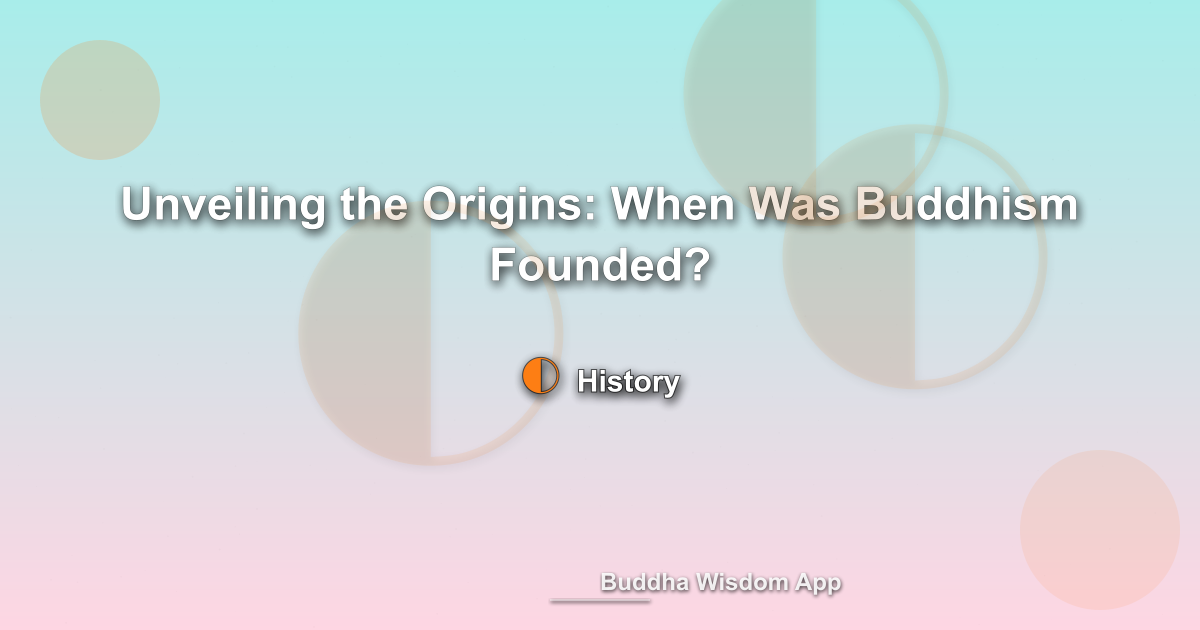Unveiling the Origins: When Was Buddhism Founded?

Introduction
Have you ever wondered about the origins of Buddhism? When was this profound philosophy birthed, and what circumstances led to its creation? In this revealing exploration, we delve into the journey of Buddhism, from its inception to its spread across the globe. Along the way, we'll also discover how the teachings of Buddhism can guide us in our modern lives.
The Birth of Buddhism: Date and Origin
Buddhism was founded around the 5th to 4th century BCE, in a region now part of present-day Nepal. The catalyst for this profound philosophy was Siddhartha Gautama, who became known as the Buddha, meaning 'the Enlightened One'. His spiritual awakening under the Bodhi tree marked the inception of Buddhism.
A Timeline of Buddhism's Evolution
After Buddha's enlightenment, he travelled extensively, sharing his teachings and gaining followers. His teachings were later compiled into the 'Tripitaka' or 'Three Baskets'. Buddhism spread to various parts of Asia through the influence of powerful empires and through the work of missionaries. Major branches of Buddhism, like Theravada and Mahayana, emerged as the teachings adapted to different cultures.
Buddhism: A Philosophy, Not Just a Religion
While categorized as a religion, Buddhism is more accurately described as a philosophy or way of life. It places emphasis on personal spiritual development and the cultivation of wisdom and compassion. Its teachings like the Four Noble Truths and the Eightfold Path provide practical guidance for leading a meaningful and fulfilling life.
Practical Applications of Buddhism in Modern Life
Buddhism's teachings have timeless relevance. Mindfulness, a core Buddhist practice, is widely recognized for its benefits in mental health and wellbeing. The principle of interconnectedness can foster empathy and ecological awareness, crucial in our globalized world.
Practice Mindfulness
One practical application of Buddhism is the practice of mindfulness. This involves being fully present in the moment, observing your thoughts, feelings, and sensations without judgment. Try setting aside a few minutes each day for mindfulness meditation. It can be as simple as focusing on your breath or the sensations in your body.
Embrace Compassion
Buddhism encourages us to cultivate compassion, both for ourselves and others. Small acts of kindness in your daily life, such as helping a neighbor or expressing gratitude, can be powerful ways to embody this principle.
Conclusion
Understanding the origins and evolution of Buddhism can deepen our appreciation for this profound philosophy. More than a religion, Buddhism offers practical guidance for personal growth and societal harmony. By integrating its teachings into our lives, we can foster greater mindfulness, compassion, and wisdom.
Continue Your Buddhist Journey
Explore more Buddhist wisdom with our free app - featuring daily quotes, guided meditations, and practical teachings for modern life.
📱 Download Buddha Wisdom App
